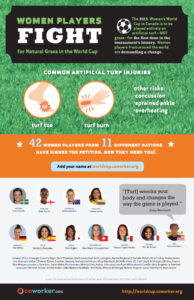FIFA Faces Backlash Over Artificial Turf Decision for Women’s World Cup
FIFA and the Canadian Soccer Association are under intense scrutiny following their decision to host the 2015 Women’s World Cup on artificial turf. Leading female footballers have voiced strong opposition, warning that the move is discriminatory and potentially dangerous, and have threatened legal action.
The announcement sparked immediate outrage among some of the game’s biggest stars, including Abby Wambach, Nadine Angerer, Alex Morgan, Veronica Boquete, and Lotta Schelin. These players argue that requiring women to compete on artificial turf—while men’s tournaments are played on natural grass—amounts to a violation of their rights.
A coalition of players from various countries has enlisted legal counsel, sending a formal letter to FIFA and the Canadian federation demanding a response by August 4. As of now, the organizations have acknowledged receipt but have yet to comment publicly on the issue.
The letter contends that staging the tournament on artificial turf is discriminatory and contravenes Canadian law. Advocates for change have also proposed alternatives, suggesting that natural grass surfaces could be provided at a reasonable cost.
Beyond the legal and equality arguments, concerns over player safety have amplified the controversy. Many coaches and players cite studies indicating that artificial turf increases the risk of injuries, including anterior cruciate ligament (ACL) tears, which disproportionately affect female athletes.

The issue marks a critical challenge for FIFA president Sepp Blatter, who recently emphasized the need for greater female representation in football governance. As the Women’s World Cup approaches, the resolution of this dispute will be closely watched by fans, players, and advocates for gender equality in sport.











